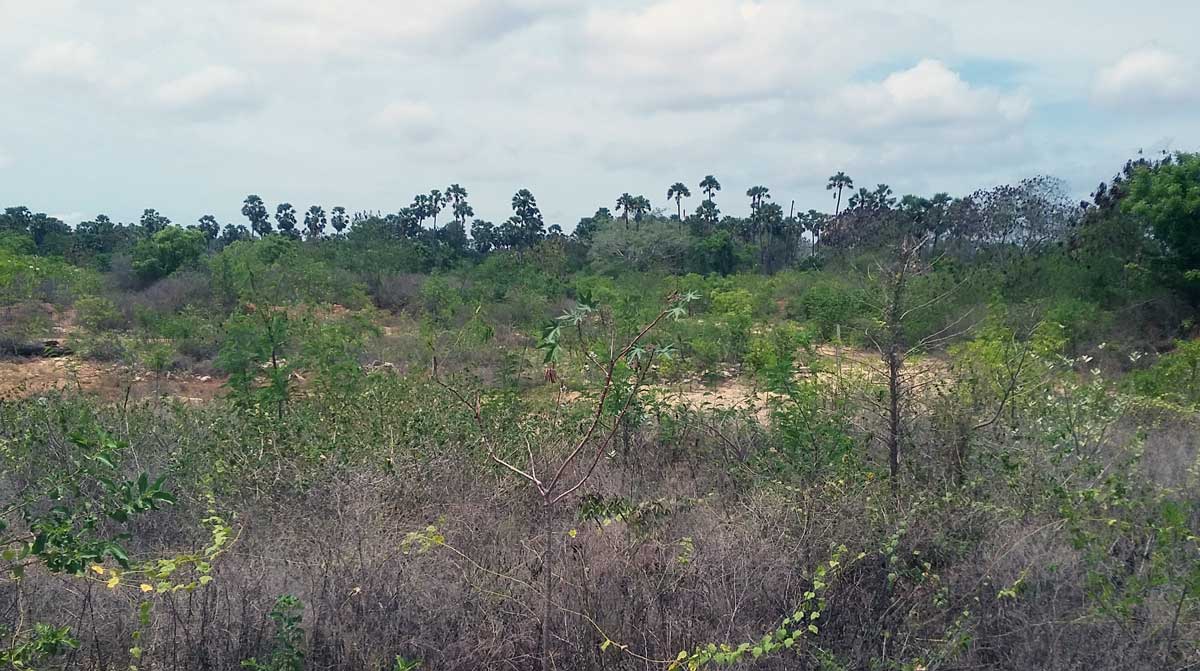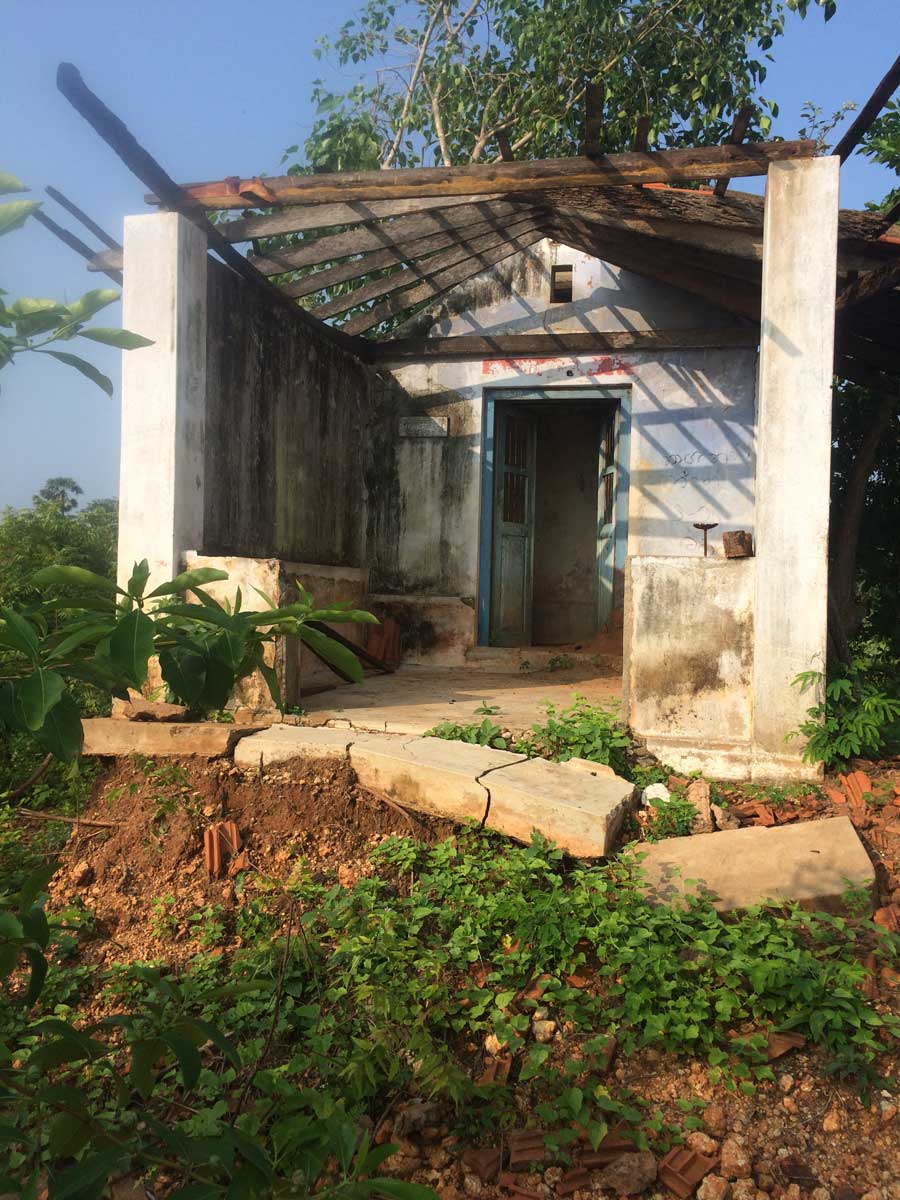Remembrance and Resilience: The Ongoing Plight of Sri Lanka's Survivors
May 18th is the Mullivaikkal Day for Tamils in Sri Lanka — a day of mourning and remembrance for the more than 40,000 civilians brutally killed in the final stages of the country’s civil war nine years ago.

Spaces to mourn and remember are an important aspect of healing and reconciliation. But the Sri Lankan government, supposedly under international watch, has made a mockery of this by criminalizing acts of remembrance. Over the years, those who have planned memorial activities in the North and East have faced surveillance, harassment, and even court orders. In sharp contrast, the rest of the country marks May 18th with military parades and fanfare celebrating the victory of the Sri Lankan forces over the Liberation Tigers of Tamil Eelam (LTTE).
Both nationally and internationally, the Sri Lankan government has worked tirelessly to erase and rewrite the history of the end of war, the bloody military offensive that led to widespread destruction, the killing of tens of thousands of civilians, and the displacement of the entire population living in rebel-controlled territories in 2009. Meanwhile, it has failed to deliver on its promise of transitional justice. The end result: the ugly long shadow of war continues to mar the nation and the survivors, making erasure impossible.
At the end of 2016, 44,000 people remained displaced from their homes, living with relatives or in welfare camps, waiting to return. In Mullaitivu, where the horrific last days of the war took place, it is estimated that there is currently one soldier for every two civilians, a de facto military occupation. The military continues to occupy large swaths of land in the North and East and is deeply imbedded in many aspects of the local economy, including running luxury resorts on the occupied land, creating a climate of fear and dependency.
Despite this, the most marginalized, discriminated against, and oppressed in the country refuse to give up. Protests by communities across the North and East demanding the return of their land have continued for over a year now. The mothers of tens of thousands of disappeared have continued their daily protests for well over 400 days, demanding answers to the whereabouts of their missing loved ones. An interactive website launched earlier this week by the International Truth and Justice Project reveals the names and information of nearly 300 people who disappeared while in army custody in the last days of the war alone. Remembrance is essential to keep the Sri Lankan government accountable to the victims, the survivors, and their relatives.
Tamil communities across the North and East are also mired in their struggles to return home. In February 2016, the Oakland Institute was petitioned by a group of IDPs in the North, displaced from their homes and land since 1990. Since then, we have not only exposed the plight of those displaced for nearly 30 years, but we have also advocated for their right to return home and to dignified resettlement, knowing that the return of land is just the first step in a long and arduous process of rebuilding lives.
On May 18th, this day of remembrance, we remember and stand together with the mothers, the displaced, and all those tirelessly working to rebuild their lives in Sri Lanka. To remember their continued struggles, we elevate the voices of one community’s long journey home.
***
In November 2016, several hundred acres of land around the Palali High Security Zone were finally released by the Sri Lankan government. After more than 26 long years of displacement, the families that call this land home would finally be allowed to return.
But the return of land is just the beginning of their long journey home.

The houses that were still standing were in various states of destruction. Many had been totally destroyed, some extensively damaged, and all needed repair. Wells had been broken and filled with garbage and debris. Agricultural lands had been mined for sand, leaving huge holes, and the area was completely overgrown. Basic infrastructure such as water, electricity, and access to roads, schools, and hospitals needed to be rebuilt.
Fast forward 18 months and the travails of the IDPs continue.
Community members share that the compensation given by the Sri Lankan government to rebuild their homes is far from enough — trapping those who have already lived through a lifetime of war and displacement in crushing cycles of debt and poverty. While there has been reportedly some improvement to the infrastructure — schools have been rebuilt and access to electricity improved — basic needs, like access to clean water, remain a major issue. And a lack of teachers means that while school buildings may exist, children cannot attend these schools, forcing them to travel long distances to receive an education.
Military camps thrive in the resettled areas, causing fear and trauma for many. One community member shared, “People are still living in a war-related post trauma. They have natural fear about the military.” Many, especially female-headed households, do not feel safe resettling on their lands, and instead remain displaced. To make matters worse, the military is active in the local economy, including agriculture and dairy farming, where they sell their products and low prices, making life even harder for local farmers.
The biggest issue remains the clearing of land. Large pits from the sand mines, and massive overgrown brush remain, making agriculture impossible. Without government support to properly clear these lands, people cannot resume their livelihoods. And if they can’t resume their livelihoods, how can they truly return home?
The government’s response has been to provide instead livelihood “packages,” but these fail to take into account the circumstances of those on the receiving end. Sewing machines have been provided to women who don’t know how to sew. Others eat the seeds and sell the tools given to them for agriculture, because without cleared land, these items are useless.
When asked what this community most wants the world to know about their situation, they state clearly: “Releasing land is not enough.” To truly return, they need more than just access to land. They need their lands cleared, real support in rebuilding their livelihoods, proper housing, access to basic needs like clean water, and to not live in the constant fear and shadow of the military.
The government may have released their land, but they are still displaced, working against all odds to actually return home.
